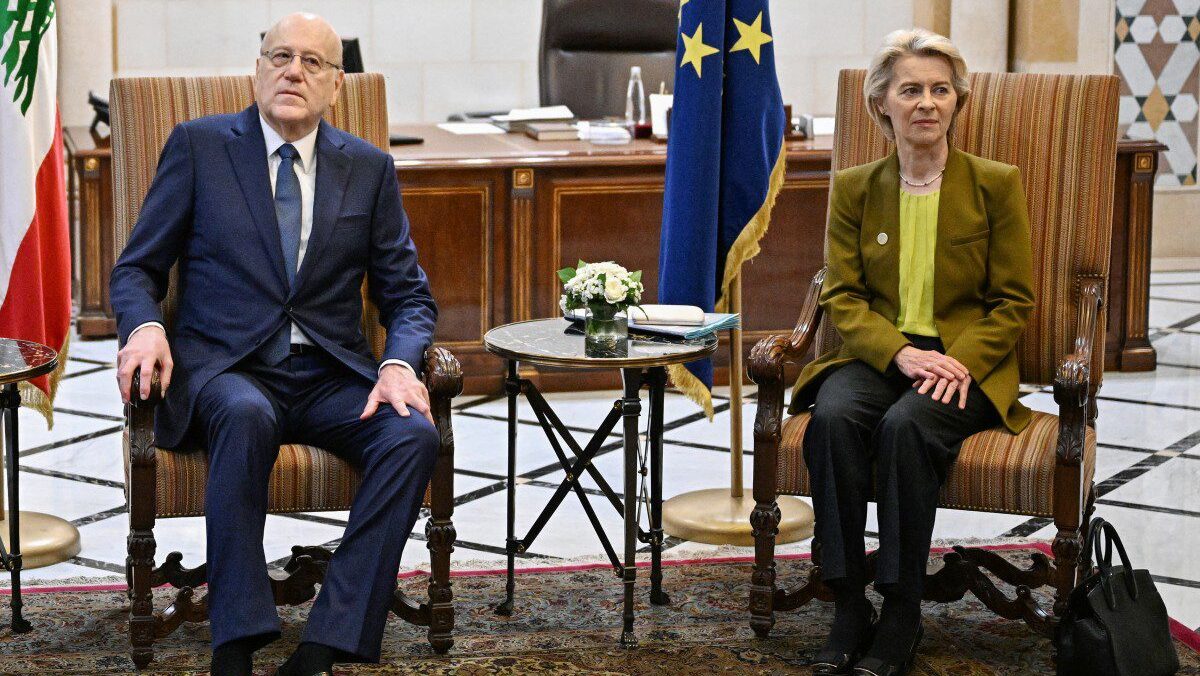
Photo: JOSEPH EID / AFP
Right-wing MEPs have criticised the European Commission for another migration deal—this time with Lebanon—that is bound to fail. Commission President Ursula von der Leyen visited the Middle Eastern country on Thursday, May 2nd, and announced an aid package worth €1 billion, much of which is supposed to go to boosting border control to halt the flow of migrants.
The bonds between Lebanon and Europe are deep and strong.
— Ursula von der Leyen (@vonderleyen) May 2, 2024
President @Christodulides and I are here to say that the EU strongly supports Lebanon and its people.
And we want to reinforce our longstanding cooperation. pic.twitter.com/fxHX8iLVpD
Lebanon, which has a population of 5.3 million, hosts the largest number of refugees—relative to population as well as surface area—in the world. Around 1.5 million refugees reside in the country, including 800,000 Syrians.
Lebanon has been facing a financial crisis for the past few years and is enduring continuing political instability, with various parties representing Christians, Shia, and Sunni Muslims barely able to work together in the multi-ethnic country. Furthermore, Lebanese politics has become a proxy battleground for Iran, which provides support for Hezbollah, a Shia Islamist political party and militant group, which regularly launches cross-border strikes against Israel and has been designated a terrorist organisation by several countries.
The turmoil has spurred migrants to leave Lebanon and head for Europe. One EU member state that has especially been feeling the brunt of these migrant waves is Cyprus, which has seen a sharp increase in the number of Syrians arriving, and recently announced it was suspending the processing of asylum applications. Some 50,000 people reside illegally in Cyprus—around 5% of the total population.
“The current situation is not sustainable for Lebanon. It is not sustainable for Cyprus, it is not sustainable for the European Union,” Cypriot President Nikos Christodoulides said on Thursday, praising the announcement of the EU deal with Lebanon.
The deal follows other EU aid packages for countries such as Egypt, Tunisia, and Mauritania to fortify their borders. The bulk of the aid to Lebanon would go to support Syrian refugees “and other vulnerable groups,” while €200 million is meant to bolster Lebanese security services in enforcing border and migration control, writes AP.
However, analysts point out that the money would be de facto “flowing into a bottomless pit”—into a failed state that is rife with corruption; into Lebanese authorities who are unable to stem the flow of migrants. Conservative British publication The Spectator believes the Commission is trying to “limit the damage” of the European elections in June where right-wing, anti-immigration forces are expected to make big gains. But deals like this one have so far failed to stop migration. Last year, the EU received 1.1 million asylum seekers, the highest number since 2016. The EU’s Migration and Asylum Pact, recently adopted by the European Parliament, also serves to manage migration instead of stopping it, meaning it could be another pull factor for migrants.
Right-wing members of the European Parliament were quick to condemn the Commission for the Lebanon deal. Harald Vilimsky of the Austrian FPÖ party said that “instead of securing borders and showing strength” the EU was paying billions of euros to foreign states.
EUropa, wo die Bevölkerung verarmt und die Elite Tribute an fremde Staaten in Milliardenhöhe zahlt, statt Grenzen zu sichern und Stärke zu zeigen. Wir brauchen die Festung Europa, nicht den Zahlmeister Europa.https://t.co/J3NgYH0KEi
— Harald Vilimsky (@vilimsky) May 2, 2024
Charlie Weimers of the Sweden Democrats said Europe should “build walls and stop boats,” while Christine Anderson of the German AfD tweeted that the only way to make a change is for voters to elect parties “that tackle border security.” She added that the conservative governments of Poland and Hungary have already shown how it’s done.
